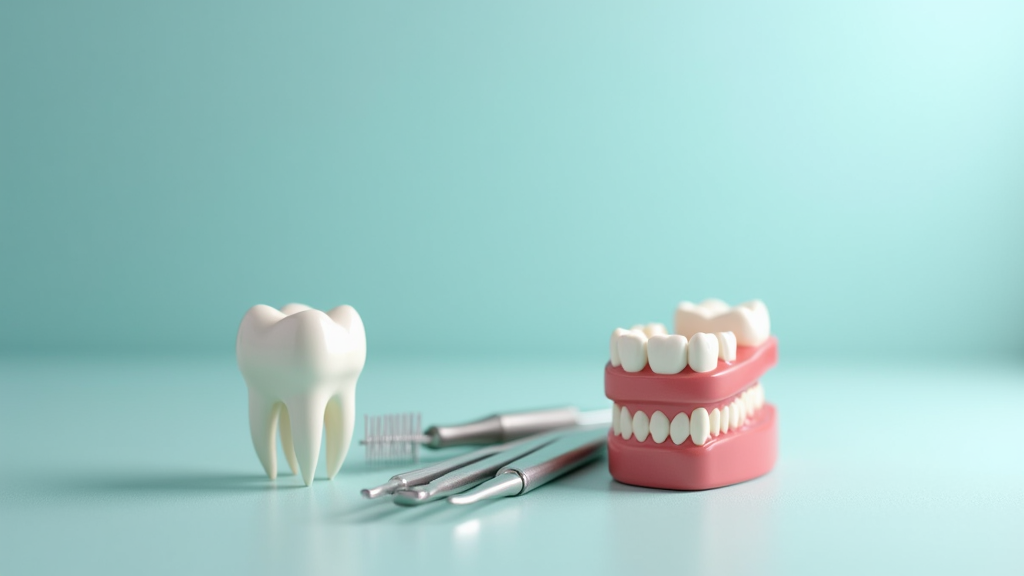Damaged teeth treatment
Damaged teeth treatment and the cost is also important because each treatment has it’s own capabilities and you need good advice before committing to treatment.
We are experts at damaged teeth treatment in Hungarian Dentists Wexford, you can call Fintan for more information on 0873490104.
Not only are we experienced in treating patients with damage teeth we offer lower cost treatments in Perfect Smile Dental Clinic near Budapest Hungary.
If you would like an opinion on the best damaged teeth treatments, call Fintan 0873490104, you can meet our lovely Hungarian dentists in Wexford for a free consultation.
Straightforward treatments
If you’ve ever chipped a tooth biting down on something hard or noticed a crack after an accidental knock, you know how bothersome and sometimes painful damaged teeth can be.
The good news is that modern dentistry offers all kinds of straightforward treatments to help save your smile, ease pain, and restore confidence.
Whether it’s a tiny chip or something more serious, there are several options worth checking out, each with its own benefits and price points.
I’ll guide you through what causes tooth damage, how different treatments work, what you need to know about costs in Ireland, and what to expect if you’re heading for dental repairs.
Perfect Smile Dental Clinic in Hodmezvasahely Hungary can provide top quality professional damaged teeth treatment at lower cost compared to Ireland.
Call Fintan for more information and a free consultation in Hungarian dentists clinic in Wexford on 0873490104.

Common Causes of Damaged Teeth
Teeth can get damaged for a lot of reasons, and understanding what caused the issue can point you to the best fix. Here’s a quick rundown of top culprits:
- Biting Hard Foods: Nuts, hard sweets, and even some bread crusts can catch you out and chip or crack a tooth.
- Accidents: Falls, sports hits, or car accidents often lead to chipped or broken teeth.
- Tooth Decay: Cavities weaken the structure of teeth, making them more likely to crumble or crack.
- Old Fillings: Fillings left for too long can break down, leaving your tooth unsupported.
- Bruxism (Teeth Grinding): Grinding wears down the enamel and can create fractures over time.
- Age: As you get older, teeth naturally wear and may become more brittle.
No matter what the cause, it’s a good idea to get any damage checked out sooner rather than later, since ignoring a chipped or cracked tooth can lead to more complicated, and more expensive, repairs later on.
Perfect Smile Dental Clinic in Hodmezvasahely Hungary can provide top quality professional damaged teeth treatment at lower cost compared to Ireland.
Call Fintan for more information and a free consultation in Hungarian dentists clinic in Wexford on 0873490104.
Sometimes the pain can sneak up gradually, and you might not spot the problem until it becomes much bigger.
By being aware of what caused the damage, you can also help prevent similar accidents in the future.
For example, if you grind your teeth at night, your dentist might recommend a mouthguard before more damage can set in.
And if decay caused the problem, you could talk about a better brushing routine or regular check-ins to keep things from getting worse.

Main Types of Damaged Teeth Treatments
Treatments can range from quick fixes to more involved procedures depending on how bad the damage is and where the tooth sits in your mouth.
Here is a list of damaged teeth solutions and costs.
- Dental Bonding: This is a simple and noninvasive fix for chips or minor cracks. A dentist applies a toothcoloured resin, shapes it, and shines a special light to harden it. Bonding is usually done in one visit and is painless. Bonding is especially popular for front teeth, since it blends in nicely with your natural tooth colour.
- Dental Crowns: For bigger breaks or teeth worn down by decay, a crown covers what’s left of your tooth. Crowns can be made from porcelain, metal, or ceramics, and help your tooth handle biting and chewing again. Crowns work well for teeth with large fillings or after a root canal.
- Veneers: Veneers are thin shells, usually porcelain, that cover the front of a badly chipped or discoloured tooth, mostly for cosmetic fixes. These make your teeth look uniform and shiny. Dentists use strong adhesives to attach veneers, and with good care they can last for many years.
- Root Canal Treatment: If a crack or break goes deep and affects the pulp (the inside soft tissue), a root canal removes damaged tissue to stop pain and infection. Your tooth is then filled and usually finished with a crown.
- Dental Implants: When damage is too severe for saving, sometimes the tooth is removed and replaced with an implant. This involves placing a metal post into your jawbone and topping it with a fake tooth that looks and feels real. Implants require good bone health, but they function just like your original tooth.
- Fillings: Small bits of tooth loss, often from decay or wear, can be patched with toothcoloured composite filling materials. Metal fillings are less common for front teeth now, but you might see them in older dental work. Composite fillings blend in with your smile and can be shaped precisely to restore the tooth’s contour.
Cost of Damaged Teeth Treatments in Ireland
The cost of fixing damaged teeth can be a big worry. I know it’s often the first thing on people’s minds before heading to the dentist.
The prices can swing quite a bit depending on the treatment, how complex the repair is, what materials are used, and even which dentist you visit.
Perfect Smile Dental Clinic in Hodmezvasahely Hungary can provide top quality professional damaged teeth treatment at lower cost compared to Ireland.
Call Fintan for more information and a free consultation in Hungarian dentists clinic in Wexford on 0873490104.
It’s important to remember that a good repair can help you avoid further dental bills down the road, saving you hassle and money.
- Dental Bonding: Typically €100–€200 per tooth. It’s one of the most affordable solutions for minor cosmetic repairs.
- Crowns: Expect to pay anywhere from €600–€950 per crown. Crowns last longer and need more skill and materials, so they’re pricier.
- Veneers: Veneers can cost between €500–€900 per tooth, depending on the material and whether extra modeling or lab work is needed.
- Root Canal Treatment: For a front tooth, this starts around €350 and can go beyond €700 for molars. You’ll also need to factor in the cost of a crown afterward.
- Dental Implants: Implants are the most expensive, usually €1,500 to €2,500 for a single tooth, including the post and crown.
- Fillings: Composite fillings are usually €80–€140 per tooth for small to medium repairs. Early intervention keeps the cost lower, so don’t wait if you suspect a problem.
Perfect Smile Dental Clinic in Hodmezvasahely Hungary can provide top quality professional damaged teeth treatment at lower cost compared to Ireland.
Call Fintan for more information and a free consultation in Hungarian dentists clinic in Wexford on 0873490104.
Some treatments may be partially covered by dental insurance if you have it, and PRSI (Pay Related Social Insurance) in Ireland covers basic dental exams but not most restorative work.
Always doublecheck with your dentist for the latest prices and chat about your options; they may know about payment plans or reducedcost clinics.
You can read more up-to-date pricing and advice on the Health Service Executive (HSE) site for Ireland.
Also, keep in mind that some dental practices offer free consultations or checkups, even if you don’t go ahead with treatment right away, so don’t hesitate to ask about that.

Step By Step: What Happens During Damaged Tooth Treatment?
If you haven’t had dental repairs before, it’s normal to feel a little nervous. Here’s how most visits usually go so you’ll know what to expect:
- Initial Checkup: The dentist will take a close look, maybe grab an X-ray, and chat with you about what you’ve noticed or any pain.
- Discussion of Options: You’ll get a rundown of what treatments fit your situation, with pros, cons, and price estimates.
- Treatment Time: Most repairs, like fillings or bonding, are carried out in the same visit. Bigger jobs (crowns, veneers, implants) might need impressions and lab work, so expect to come back a week or two later for fitting.
- Numbing and Prep: For larger fixes, you’ll get a local anesthetic, so you won’t feel pain during the work.
- Aftercare Tips: The dentist will give you advice for looking after your new repair. Usually easy stuff like avoiding biting down hard, keeping up good brushing, and maybe avoiding certain foods for a few days.
It’s also a good idea to let your dentist know if you have any dental anxiety or special health needs, so they can help smooth the way and put you at ease during the visit.
Many dental teams are used to working with nervous patients and can offer things like gentle techniques or distraction strategies during longer repairs.
Practical Challenges and What to Watch For
Treating damaged teeth usually goes smoothly, but there are a few things I like to remind people to keep an eye out for:
- Sensitivity: Your tooth might feel sensitive for a bit, especially if the repair is large or close to a nerve. This usually settles in a few days.
- Durability: Repairs like bonding or fillings can eventually wear down or stain, especially if you like tea, coffee, or red wine. Regular checkups help spot early signs of wear.
- Maintenance: Crowns and implants are tough, but even they can occasionally chip, especially if you grind your teeth or have an accident. A wellfitted nightguard might be a smart preventative measure.
- Oral Hygiene: Brushing and flossing around your repaired tooth is super important to prevent decay or gum problems from sneaking in around the edges. Your dentist might recommend softer toothbrushes or special floss for reaching tricky spots.
Keeping in touch with your dental team helps catch anything early before it becomes a bigger issue.
Perfect Smile Dental Clinic in Hodmezvasahely Hungary can provide top quality professional damaged teeth treatment at lower cost compared to Ireland.
Call Fintan for more information and a free consultation in Hungarian dentists clinic in Wexford on 0873490104.
If something doesn’t feel right with your repair, or if you notice swelling or pain, make an appointment as soon as possible for a checkup.
Early attention might be the difference between a small tweak and a total do-over.
Advanced Treatment Options and When They Make Sense
If standard repairs just aren’t enough, or if tooth damage keeps coming back, there are a few extra solutions:
- Onlays/Inlays: These are like halfway points between fillings and crowns. They’re made in a lab and cemented onto the tooth; great for large areas that need extra strength and for people who want a less invasive option besides full crowns.
- Larger Bridgework: If you’re missing one or more teeth, bridges can replace gaps. These anchor to your other teeth for stability and help restore your bite and confidence. Modern bridges use naturallooking materials to keep your smile looking its best.
- Nightguards: If grinding is the issue, a customfitted mouthguard can help stop new damage. These are especially crucial for anyone who wakes up with jaw pain or headaches from clenching during sleep.
Specialist dentists can offer more advanced options. If you’re not sure you’re getting the best advice, it’s totally okay to ask for a referral or second opinion.
Prevention and open discussions with your dentist help make sure you get the safest and most suitable repairs for your situation.
Dental advances are happening all the time, so don’t be shy about asking about the latest techniques if you’re curious.

Frequently Asked Questions
Question: What’s the first thing I should do if I break a tooth?
Answer: Save any pieces if you can, rinse your mouth with warm water, and book a dentist appointment as soon as possible. If there’s pain, try over-the-counter painkillers and avoid chewing on that side.
Question: Will it hurt to fix a damaged tooth?
Answer: Most fixes, like fillings or bonding, are painless, especially with numbing for bigger jobs. You might feel a little sensitivity afterward, but it goes away pretty quickly for most people.
Question: How long do these repairs last?
Answer: Simple fillings and bonding can last several years if you take care of them. Crowns, veneers, and implants can last much longer, often a decade or more with the right care and regular dental visits.
Question: Do I really need to fix a small chip?
Answer: Even tiny chips can turn into bigger problems down the line, like further breaks or decay starting where it’s hard to clean.
Getting it checked never hurts. Sometimes the fix is easier (and cheaper) than you might think.
Wrapping Up: Making the Best Choice for Your Smile
I’ve seen how much of a difference simple repairs can make, not just for looks, but for comfort and peace of mind.
Talking openly with your dentist, knowing your options, and understanding the typical costs in Ireland can take a lot of the stress out of sorting damaged teeth.
Whatever route you go, looking after repairs with good brushing and regular checkups is the best way to keep your smile strong for years to come.
Remember, prevention is always better than cure, so stay curious and keep up those healthy dental habits. Your smile will thank you!
Perfect Smile Dental Clinic in Hodmezvasahely Hungary can provide top quality professional damaged teeth treatment at lower cost compared to Ireland.
Call Fintan for more information and a free consultation in Hungarian dentists clinic in Wexford on 0873490104.
Read small teeth in adults.

